Stricken by cancer, a migrant worker sees through one last act for his Singapore community before heading home
Bangladesh national Fazley Elahi, who founded a cultural show and library for fellow migrant workers, remains hopeful of beating the disease - and of returning to Singapore one day.
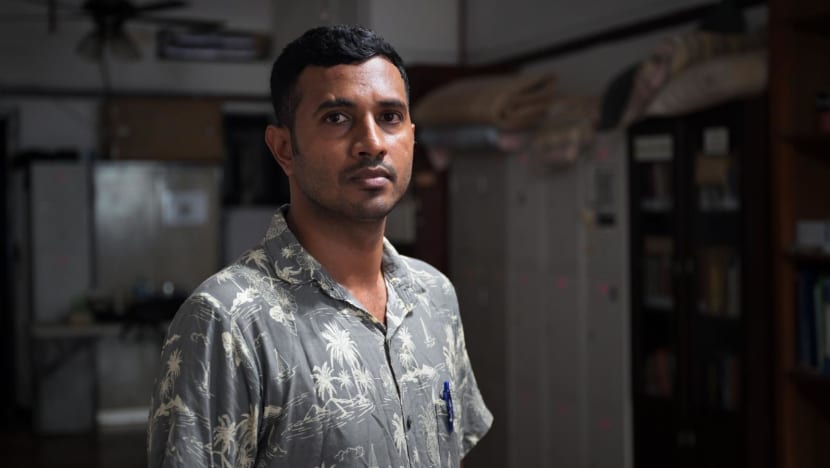
Fazley Elahi arrived in Singapore about 15 years ago. (Photo: CNA/Marcus Mark Ramos)

This audio is generated by an AI tool.
SINGAPORE: Fazley Elahi has always found a way to contribute.
Rubel, as his friends call him, has provided for his family in Bangladesh.
And he's served his community in Singapore, by founding initiatives to showcase fellow migrant workers' talents as well as promote reading among them.
But the 37-year-old now has no choice but to step away from the latter efforts: This year's edition of his Migrant Cultural Show, to be held on Sunday (Jun 16), will be the last he organises.
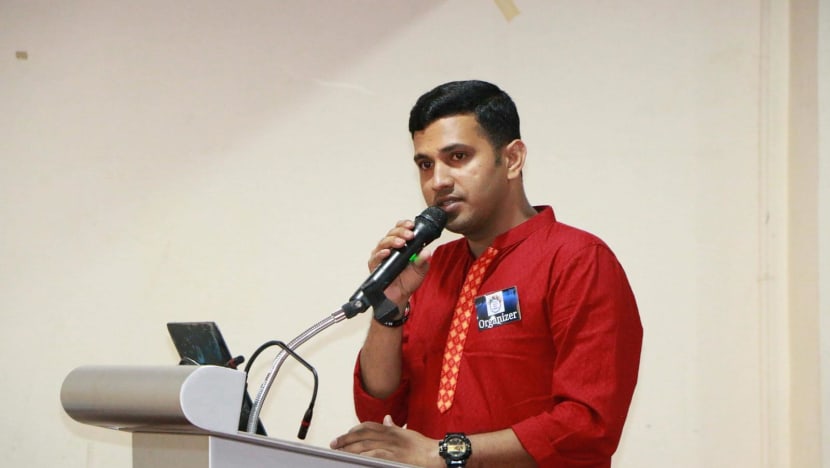
His time in Singapore has been cruelly cut short by an incurable cancer which started in his colon and has now spread to the rest of his body.
As he prepares to return home in two weeks' time, to live out the rest of his days with his wife and young son, Mr Fazley wants to tell his story.
FAMILY RESPONSIBILITY
Born in the Noakhali district in Bangladesh, Mr Fazley first arrived in Singapore in September 2009.
"I'd just finished my college and during that time, my family was very, very much in debt and financial crisis," he told CNA.
"At the young age of 19 years old, to come to Singapore and take the responsibility of my whole family in my hand, that's a very tough decision ... (But) the right decision."
With his family unable to cover the fees paid to an agent to get Mr Fazley to Singapore, he had to borrow from various sources to come here to work. It took about four years of his salary here to repay the loans.
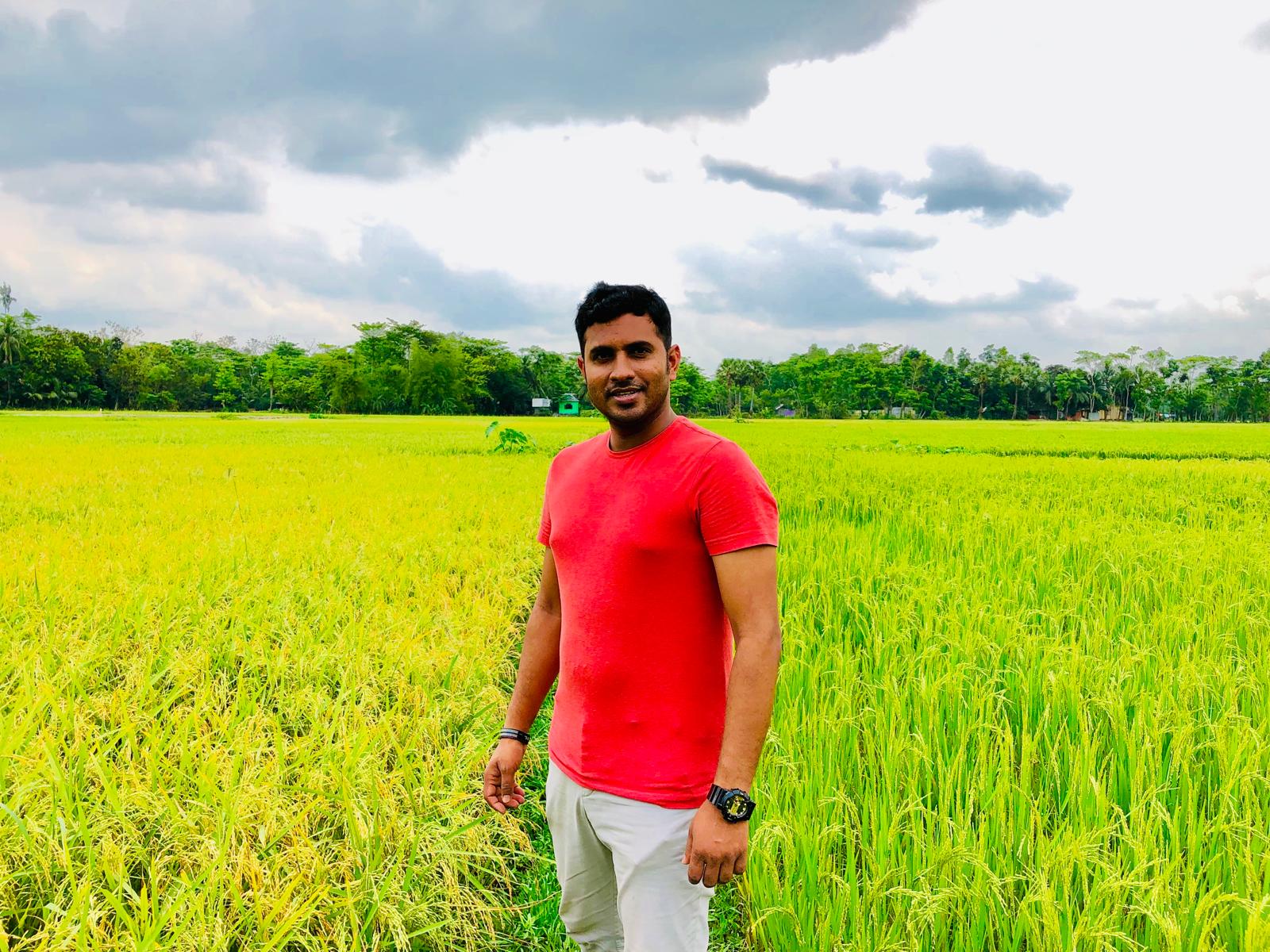
"All the agencies in Bangladesh, they display all the nice places, photos, 'dream city' Singapore, all these things. It was like a dream country," he said.
"I felt that as long as I went there, I would have so much money and I could solve all the problems in the family."
When Mr Fazley arrived, the electrician job he had been promised turned out to be a backbreaking role "cleaning and carrying things" for a contractor.
When work was done for the day, he found himself living in a cramped space with 10 other migrant workers.
"When we passed by (each other), another person could not move ... I didn't believe it, I thought it was just a temporary situation because I came here (recently) and they had to arrange my accommodation somewhere else," he recalled.
"After a while I understood that everybody else there had been there for a few years. That was a shock."
Yet Mr Fazley realised there was no turning back. "Everybody else is waiting for me to send money home so they can eat," he said.
As the years ticked on, he took it upon himself to take up courses and upgrade his skills. He eventually attained a more supervisory position, and was a safety coordinator in his last job.
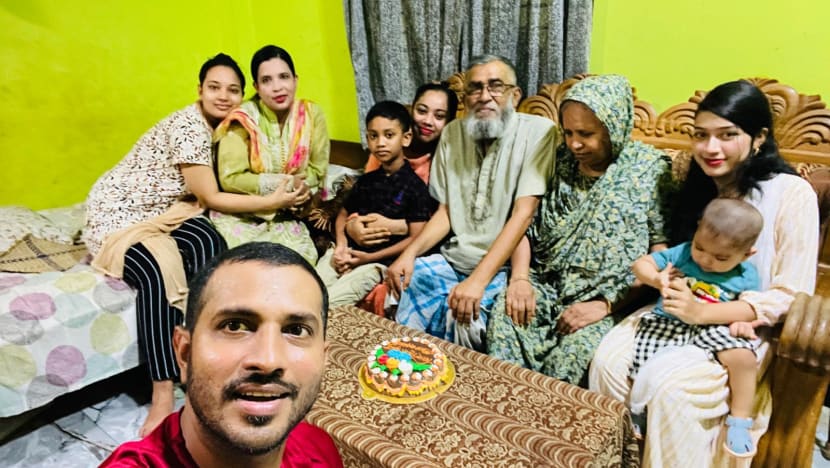
Mr Fazley was the sole breadwinner of the family for much of his time in Singapore, until his younger brother joined him about two years ago.
BREAKING BARRIERS
Early on during his time in Singapore, Mr Fazley came to perceive migrant workers as separated from the rest of the community by what he described as "barriers".
For one, he noticed how migrant worker accommodation was typically located away from residential buildings.
His dormitory was located near a condominium, and the workers would get chased off by a security guard if they sat on a footpath outside their lodgings.
They were also told not to "go into the residential areas, not to cause any disturbance to residents", he recalled.
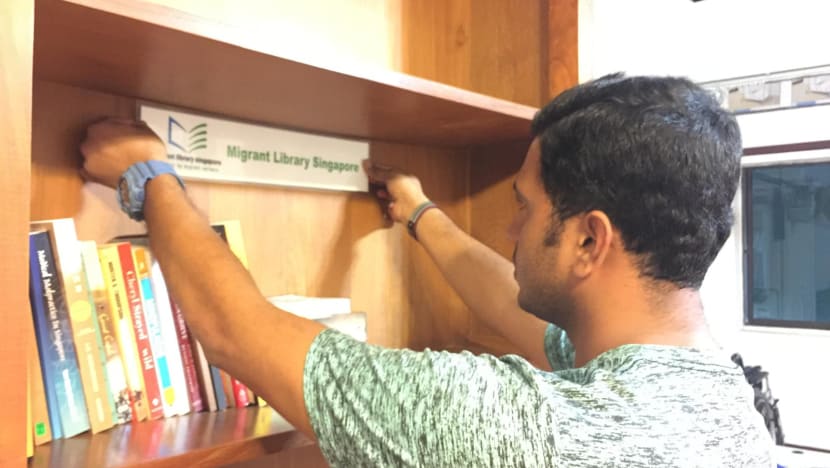
Mr Fazley believes this has led to a gap in developing understanding of different cultures.
"It took me seven years for me to build communication with the local community. I knew the first Singaporean as a friend after seven years," he said.
In 2015, he began to get involved in advocacy work after meeting some non-governmental organisations (NGOs).
His first idea was to replicate something he had started back in his village in Bangladesh while still in college - and so the Migrant Library Singapore was founded in 2017.
Mr Fazley went on to launch the Migrant Cultural Show in 2018, as an annual outlet for workers with a passion for singing, dancing, poetry and more.
Free and open to the public, it aims to promote friendship and bonding among different nationalities as well as between local and migrant communities.
One member of the organising committee of the Migrant Cultural Show is Ms Yuliatun Suraji, who has known Mr Fazley for close to seven years.
"He is very positive ... I learnt from him (the mindset) that 'If other people can do it, so can I'. If we don't try, we will not see the results."
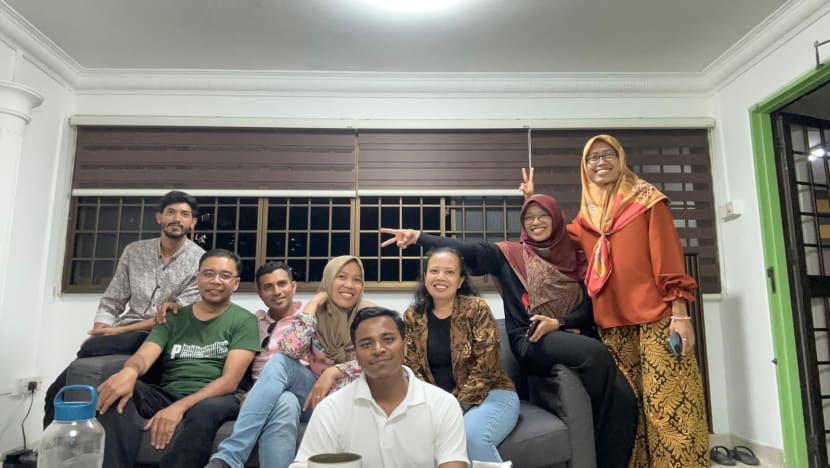
A SHOCKING DIAGNOSIS
In 2022, Mr Fazley began to experience some pain when passing urine, along with a persistent fever.
A colonoscopy unearthed a tumour and days later he was diagnosed with colon cancer.
"My wife was four, five months pregnant and my brother came to Singapore in April, just right before my diagnosis," he recalled.
"I didn't know anybody in my life who had cancer ... My first question to the doctor was: 'My wife is pregnant, will I be able to see my son?'"
Supported by a friend as well as a local NGO, he underwent surgery to remove 15cm of his colon, and did chemotherapy for a few months after.
Mr Fazley was subsequently let go by his company. While searching for a new job, he resorted to secretly staying in a basement storeroom at an ex-employer's construction site, for about two months.
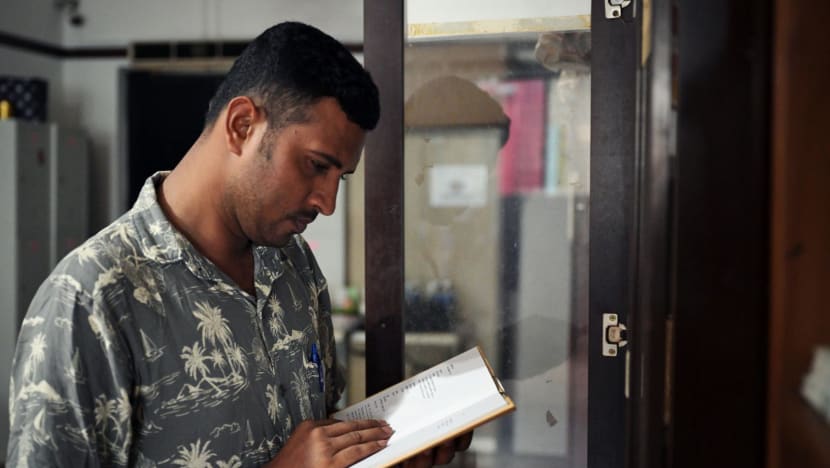
Mr Fazley eventually found work which came with a big pay cut. But it was a decision he had to make to continue treatment in Singapore.
A month into his new job, he found out that the cancer had spread to his liver.
"I didn't inform my boss because of the trauma that I had gone through with the previous company," he explained.
He went through more than a year of chemotherapy in secret, while continuing with his day job.
"If they knew, I didn't think they would react differently from my previous company," he said. "One thing everybody used to say in construction: 'I'm running a business not a charity.'"
As his hair began to fall off, Mr Fazley shaved his head and wore a cap. When his hands turned black from the chemotherapy, he explained it as a side-effect from medicine for a liver problem.
A TURN FOR THE WORSE
Despite treatment, Mr Fazley was told last month that his cancer had spread further to his lung and bones.
"I asked (the doctor) how much time I have if I don't do anything, she said maybe three to six months."
Given the cost of continuing treatment in Singapore, he has decided to return to Bangladesh on Jun 23.
"If possible, I will seek for some treatment. If it's not treatable and there is no cure and it is very expensive, I will not ... I don't want to spend every dollar for myself."
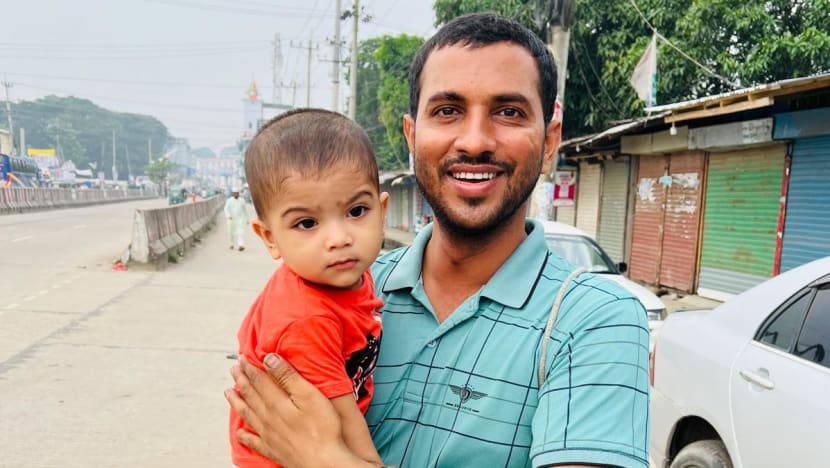
It is his firm desire to not financially burden his family. And having spent so many years providing for them, his biggest concern is who will take care of his son.
Between spending S$50,000 to S$100,000 to live one more year and dying next month, he "would choose next month".
Yet Mr Fazley has also vowed to keep fighting.
"I am strong, mentally, spiritually and emotionally. I believe by dieting and controlling some things, I can live even longer than what doctor has said. I have pushed myself to deny the fact," he added.
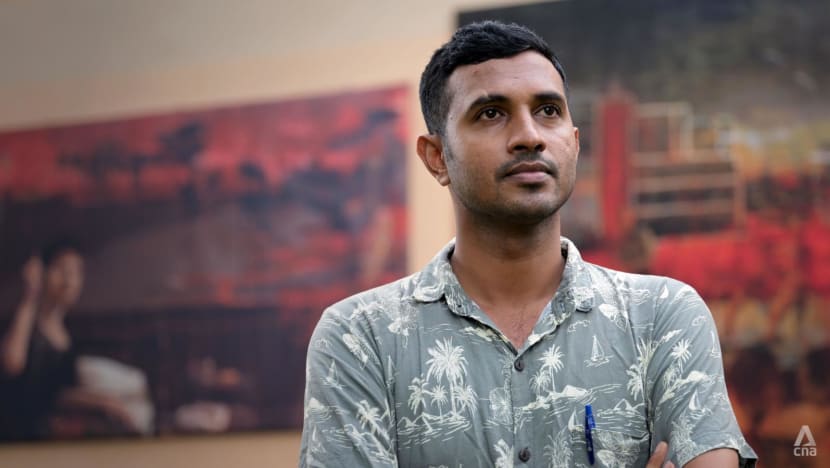
BUILDING BRIDGES
Mr Fazley said he would "never forget" the friends who helped him through difficult times, with acts such as driving him to chemotherapy sessions after work.
"I have been loved by this city and this people; the same way, I love this city and this people."
Former Nominated Member of Parliament Anthea Ong first crossed paths with Mr Fazley around 2017, and considers him a friend today.
"Migrant workers spend so much of their lives with us. When they are actually ill, what's next for them?" she asked. "He's not the first one (to face this) and he won't be the last one."
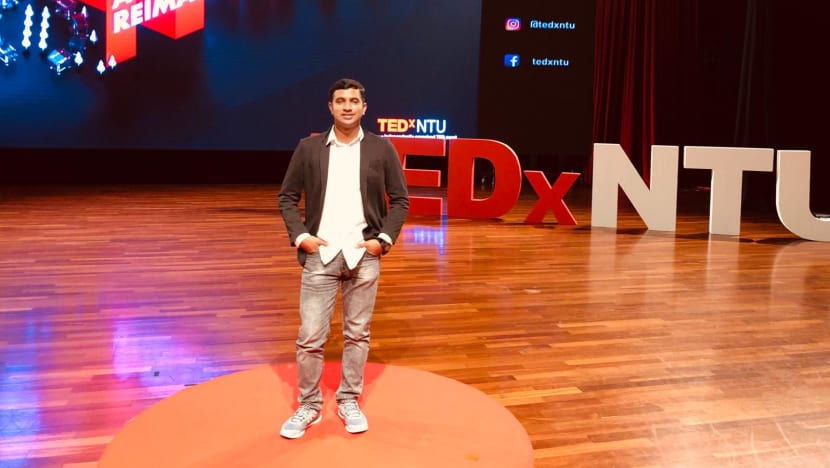
When he returns home, Mr Fazley will be missed by many.
"He has given so much to Singapore," said Ms Ong. "He has chosen a path that is more on building bridges ... the effort has been one of patience, one of kindness and love.
"I'm saddened but I'm also so grateful to this very kind, wonderful human being who has never let any of these challenges, adversities get him down," she added.
"This is a really good human being who has contributed so much to our economy, to our community, to our culture."
Amid his personal struggles, Mr Fazley continues to be a voice for others.
"What ordinary Singaporeans can do is to support the idea of acceptance and inclusion of migrant workers to the fabric of Singapore," he said.
"We leave our family and our society for many years ... we are here alone. If we are not included in this society, we will be like strangers. You don't want to live like a stranger for decades."
He still dreams of one day returning to Singapore, and of finding a country different from before; a country which has learnt to treat its migrant workers even better.
"If I'm still alive after one year or two years, I will come back to Singapore to meet all my friends, and just to try the catering food to see if it has changed," he said.
"I still hope (to) come back and stand on the Migrant Cultural Show stage to give a visiting speech."
















